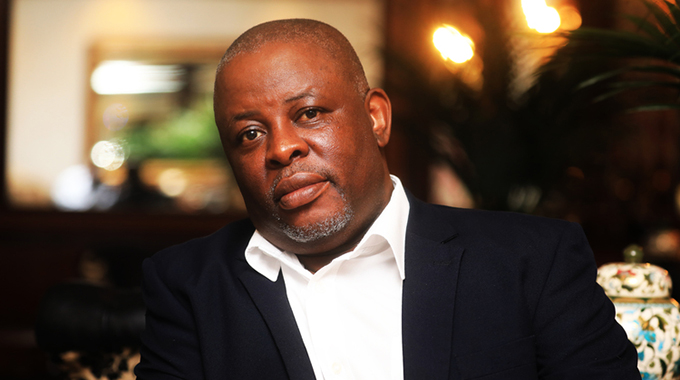Editorial Comment: Covid-19: Let’s not throw away gains made thus far

Infections and deaths from Covid-19 are rising in Zimbabwe, with 12 422 positive tests recorded by the beginning of the week plus 422 deaths and with the trend lines on the graphs steadily rising from the exceptionally low rates of September and October.
Added to our own community infections, we are ow seeing huge traffic queues at Beitbridge of Zimbabweans coming north, perhaps only a third of the normal festive season numbers, but still several thousands a day crossing the river from a country that is also seeing a second wave of Covid-19, including cases of a new mutated strain of the virus.
This should not be a problem. As Zimbabwe opened its economy and then opened its borders, regulations and rules were put in place to ensure this could be done safely with minimum risk, regulations intended to ensure that we could all earn our living and could travel more freely, but without killing anyone.
Unfortunately there is complacency by many, and downright selfishness by some. Corrupt officials on both sides of the Beitbridge Border Post apparently are willing to pass through someone with no certificate guaranteeing they are free of Covid-19 for just R200, a fact The Herald has partially verified, and even honest officials are being presented with good fake certificates. And added to these, who do use the bridge, are the swimmers and waders prepared to battle crocodiles.
It is also fairly obvious that many crossing the border as pedestrians are taking a bus to the border, walking across, and then taking a bus, possibly a pirate kombi, home.
We do not know just how many are cheating the clear and rational controls, and we hope they are a small minority, but the fact that some are cheating, and that even a small percentage could amount to a few hundred a day as numbers build up, should make us all worry.
Meanwhile, back home, mask wearing is diminishing. Some keep their mask in their pockets, even when in a crowd; others wear the mask round their neck, fine if they are walking alone along a near empty street, but keeping the mask as a neck warmer when on a bus or in a crowd is unacceptable.
Social distancing is observed less and less. You still get people trying to be careful, but many now shake hands, embrace and sit close together, with public drinking becoming more common even if people have to buy their alcohol in a supermarket or from the back-door of a pub.
And if anyone is enforcing the 10pm curfew for non-essential workers, we have not heard or seen them doing so.
And as the World Health Organisation has warned, Zimbabwe could lose the incredible gains it has made, unless we all buckle down.
Zimbabwe has so far coped exceptionally well with Covid-19. We started with a tight lockdown when we had only a handful of cases. We eased that lockdown, carefully and in stages, to re-open our economy.
The basic Government policy, and a policy praised by the WHO among other experts, was to replace a tight and near total lockdown with individual responsibility for public health. Instead of keeping us all at home, we were all let out to earn our living, to go to school, and even, in small groups, to attend church services or, with tables spaced out, have a meal in a restaurant.
But the other side of the inherent bargain was that we would all act responsibly. We would wear our masks when around others; we would keep our distance; we would wave or bump elbows rather than shake hands or embrace; we would clean our hands as we walked into buildings or climbed aboard a bus. In other words, we would act as responsible adults to minimise risks to ourselves and not be a risk to others.
There was police enforcement at the beginning of this policy, but the whole idea was that we would do it automatically, like using an umbrella or raincoat when walking in the rain, because we were sensible people. We all knew exactly, by this stage, how Covid-19 was transmitted with one of the best education and information campaigns launched by the Government and backed fully by all media. It is impossible to listen to the radio, watch television, read a newspaper, or for that matter go to church or school, without being informed.
And most of us saw the point and complied, not because some cop was breathing down our neck, but because we did not want to fall sick. Even those on the edge of the law, like the pavement vendors, were acting responsibly. They wore masks and they spread themselves out, and in return many in authority turned a blind eye, probably thinking it was better to have this sort of activity done safely out in the open than done without precautions secretly.
Since those days complacency has been creeping in, and this complacency is reflected in those rising lines on the graphs of daily infections and daily deaths. We are not yet at the July levels, but we are moving there.
It is not all bad news. Supermarkets, most major corporate and Government offices, and some smaller businesses do still insist on temperature checks, masks and sanitising before letting you in. Hospitals, now all back in full operation and having benefited from Covid-19 and other Government reforms by being better equipped and supplied, are pretty rigid about visitors. Schools were usually paragons of compliance.
But go into many of the smaller shops, and the rules are not obeyed. While pirate kombi crews never really cared, now most do not bother even keeping a mask warming their neck and have gone back to their old ways of squeezing in crouching passengers at the front row. Even some Zupco conductors have become slack about wearing a mask themselves and insisting on all passengers wearing one, although Zupco does have people with spray backpacks at terminuses to quickly sanitise each bus as it arrives.
Vaccines have been approved, but it is going to take time to make seven billion doses for the whole world, if we only need one shot, or almost 15 billion doses if we need two. And even then the cost and logistics of keeping and moving vaccine doses in extreme cold have to be overcome. Perhaps more worrying are the new strains being seen, something that was expected as Covid-19 is an RNA virus and such viruses are unstable. Perhaps approved vaccines will work against them, but perhaps scientists will have to tinker with the vaccine. No one knows.
So it is highly likely that the world has at least another year of having to live with Covid-19. We now know how to live with it, and Zimbabwe’s incredible success in doing so and beating back the infection was an example for everyone. But we did so by all acting responsibly, accepting that the Government advice and rules were for our own good and taking control of our own lives rather than relying on enforcement.
We cannot throw that away.










Comments